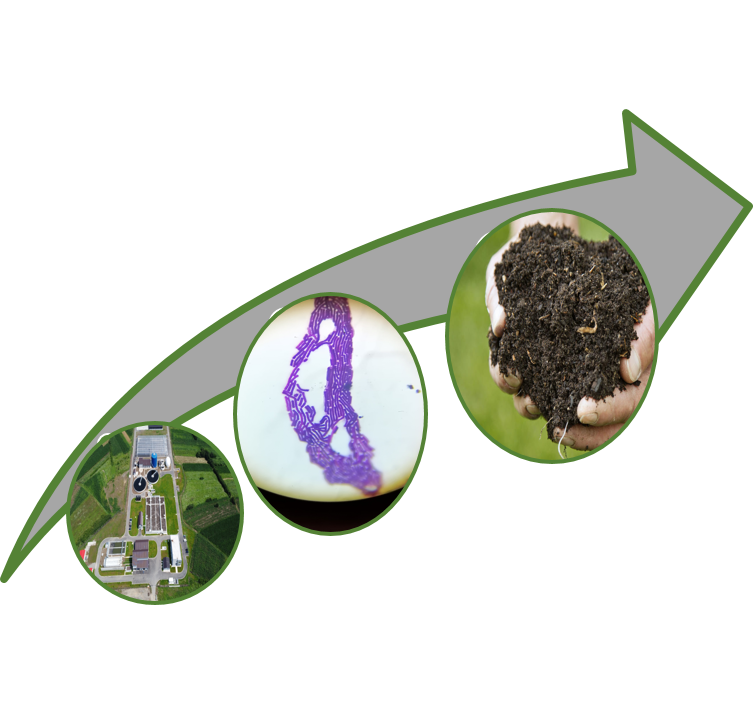SCIENCE FUND OF THE REPUBLIC OF SERBIA
Design and application of microbial consortium for compostin and treatment of sewage sludge (Micro-compost)


The Faculty of Agriculture, University of Belgrade, Department of Environmental Microbiology, is the project leader for the project „Design and Implementation of a Microbiological Consortium for Composting and Treatment of Waste Sludge“, which is implemented within the „Proof of Concept“ program of the Science Fund of the Republic of Serbia. The acronym of the project is „Micro-composst“.
The amount of waste sludge generated after the treatment of municipal wastewater is continuously growing, representing a challenge in environmental protection. Given the high content of organic matter and nutrients, such as nitrogen and phosphorus, waste sludge can be used as a fertilizer and soil conditioner in sustainable agriculture. However, its use is limited due to the presence of difficult degradabile organic compounds, human pathogens and antibiotic-resistant bacteria.
European regulations require special treatments before the use of sewage sludge in agriculture, with composting emerging as one of the most effective solutions. The „Micro-composst“ project is based on an innovative approach that involves the use of a specially designed microbial conostrium during the composting process. The aim is to improve the biodegradation of organic pollutants, reduce the presence of pathogenic microoroganisms and antibiotic-resistant bacteria, thereby enabling the safe and more efficient use of sewage sludge.
The proposed solution has no equivalent among existing commercial products, is economically viable and contributes to sustainable waste management. Its application is in line with standard composting processes, making it compatible and scalable in practice.
